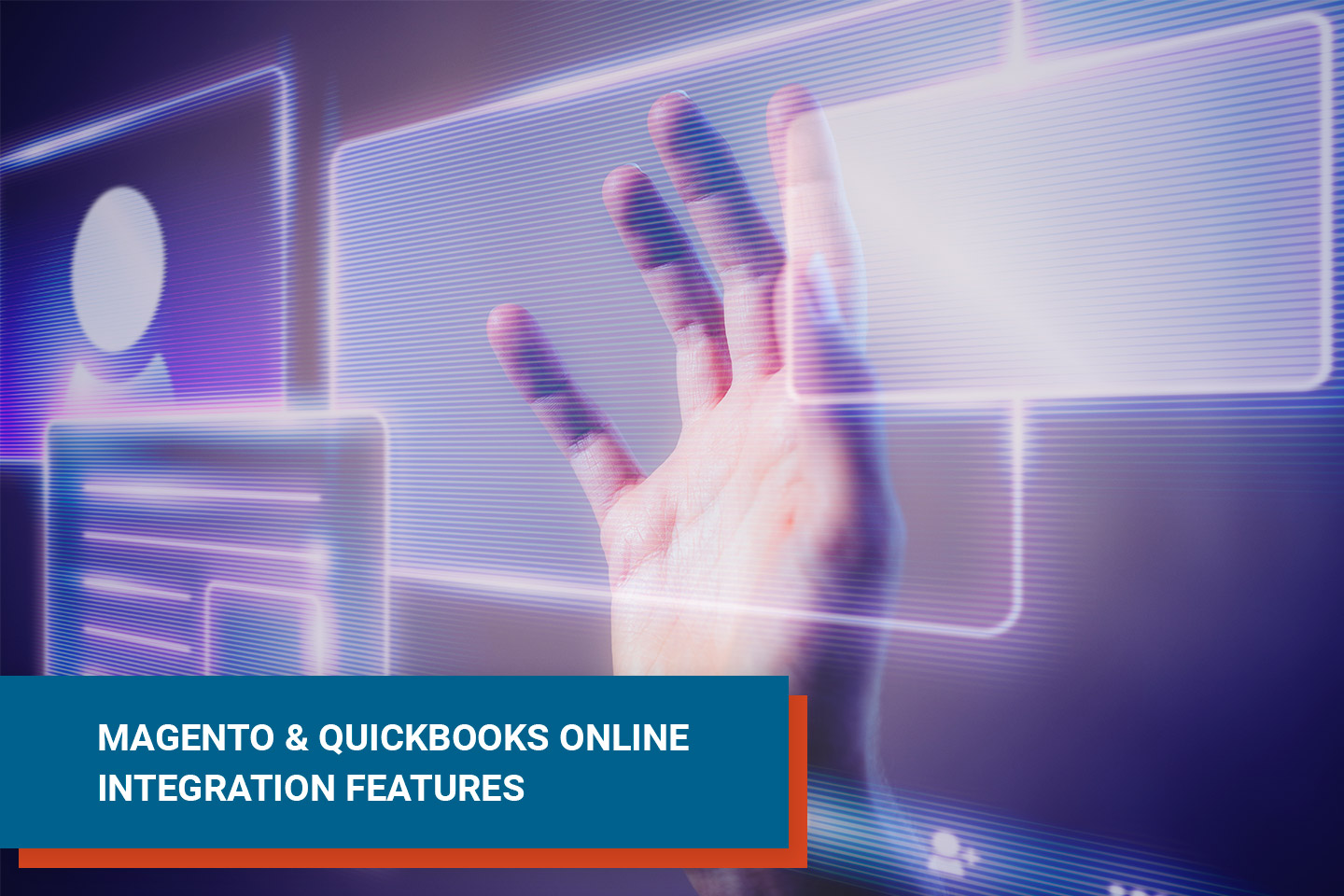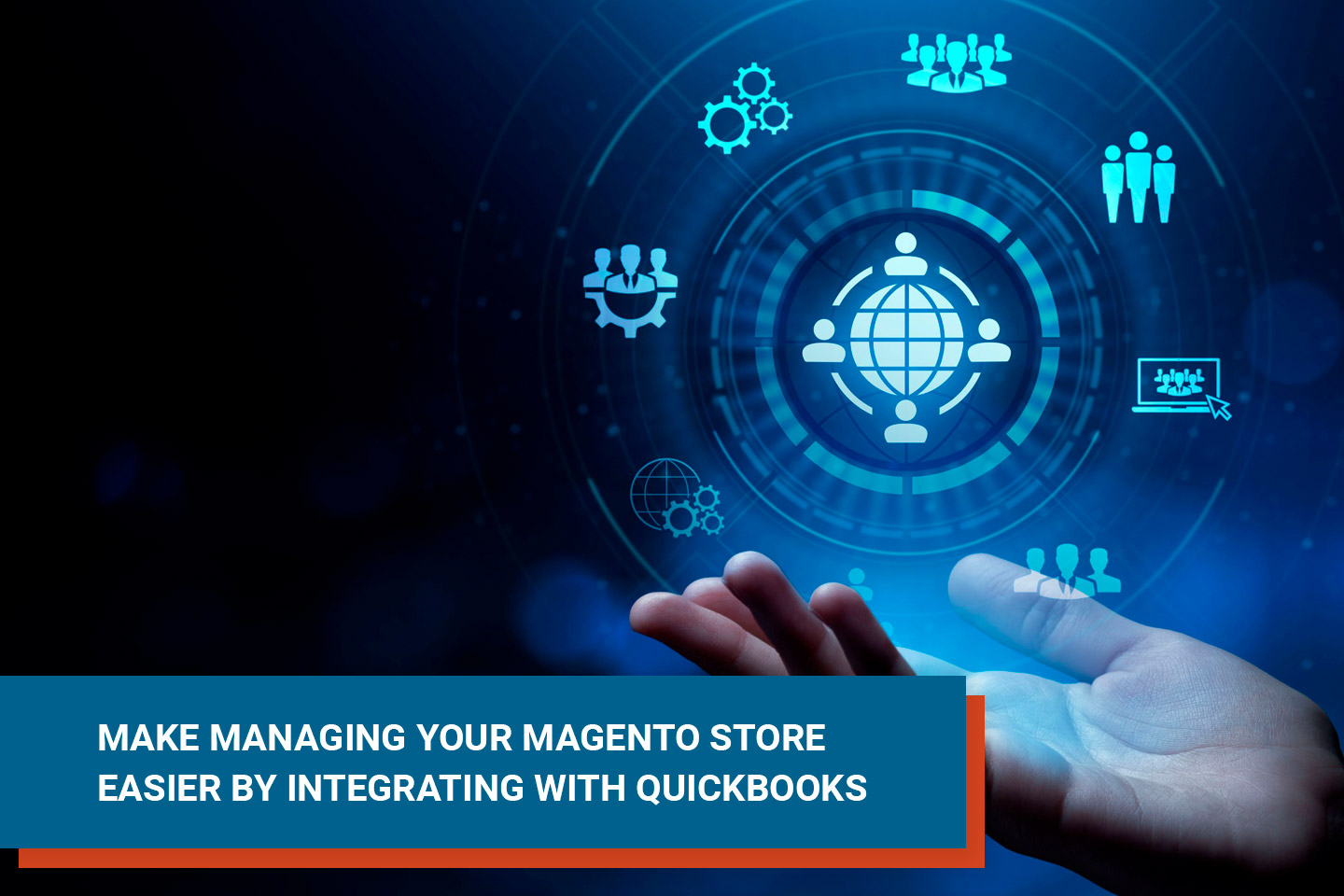What You Need to Know about Salesforce-QuickBooks Integration
 Igor Krasnykh
·
4 minute read
Igor Krasnykh
·
4 minute read

QuickBooks is an accounting software solution that was developed by Intuit, the same company that owns TurboTax. Today, more than 4.3 million businesses rely on QuickBooks as a key part of their internal financial process.
Because most large corporations have professional accountants to give their books personal attention, QuickBooks is mostly used by small and medium-sized businesses. It assists companies with accepting business payments, managing and paying bills, and handling payroll functions.
The program is known for its ease of use and can help you manage your taxes with confidence and peace of mind. QuickBooks also offers assurance that your financial data will be kept safe and secure.
QuickBooks comparison: Desktop vs. Cloud
If you are considering making QuickBooks an integral part of your business process, you will need to determine which version is right for you. QuickBooks has two premier options available on its website – QuickBooks Desktop Pro and QuickBooks Online Plus. The majority of QuickBooks customers use the desktop version, even though Intuit is putting most of its efforts into its cloud-based service. There are benefits and drawbacks to each version, but Intuit’s long term strategy is to phase out the desktop version of QuickBooks.
The desktop version requires a one-time payment, which is appealing to many users. The cloud-based version has a few different plan options that are all available via a subscription-based model. With the desktop version, you do not need an Internet connection to use it. However, you can’t access it across all of your devices like you can with the cloud-based software. While the cloud version offers that layer of convenience, it is also vulnerable to outages when the website is experiencing technical issues.
Salesforce-QuickBooks integration
One key benefit of using QuickBooks Online rather than the desktop version is the ability to easily integrate it with other web-based systems. We touch on the benefits of system integration in a previous post, and one of the main attractions is the potential to save a significant amount of time and money. One of the most beneficial system integrations for businesses that use QuickBooks is to synchronize it with their customer relationship management (CRM) system. Because a CRM tracks every customer transaction, syncing it with accounting software makes a lot of sense. Keeping data synchronized between the critical systems you rely on is helpful in the following ways:
- It cuts out the guesswork. By integrating your CRM and accounting software, businesses can focus on growth rather than spending hours researching and maintaining it;
- It allows for better business decisions. Improved reporting quality reduces the probability of human error and allows businesses to make decisions based on real-time data;
- Duplicate manual work is eliminated. After the initial set-up, the automation handles the rest of the work. By providing a way for systems to talk to each other, there is no longer a need to hop between two platforms to accomplish tasks.
One of the leading names in CRM is Salesforce, and it is our No. 1 choice for businesses in the eCommerce space in particular. For businesses that have made the strategic decision to leverage the leading names in accounting and CRM, Salesforce-QuickBooks integration can be a game-changer.
Learning the software is the first step for Salesforce-QuickBooks integration

You can’t benefit from a Salesforce-QuickBooks integration if you’re not using the platforms. While you may realize the benefits of seamlessly integrating Salesforce and Quickbooks, migrating to industry-leading systems is the first step. The programs can seem complex to those using them for the first time, but they are also known for their user-friendliness.
If using Salesforce and QuickBooks feels intimidating to you, that’s understandable. However, do not let it be the roadblock that stops you from benefiting from a time- and money-saving integration. There are many resources available that can help you become a pro. Here are some of our top picks.
How to learn Salesforce
1. Tap into YouTube tutorials Doing a YouTube search for “ Salesforce tutorials for beginners” will bring up several how-to videos from a number of different users. The official Salesforce YouTube channel also includes a How-Tos playlist featuring dozens of videos. Cost: Free.
2. Get Salesforce certified Obtaining a Salesforce certification not only ensures you learn how to use the software, it makes you an IT asset to many companies. If you’re not sure where to begin when it comes to obtaining Salesforce certification, downloading A Guide to Certification Paths from Salesforce is a practical place to start. The eBook offers a step-by-step certification guide depending on your level of experience with Salesforce. It includes links to hundreds of training resources. There are also independent certification options, such as Simplilearn and Udemy. Cost: Free-$999.
3. Join the Salesforce Trailhead community Salesforce launched its Trailhead resource for the specific purpose of helping people learn its products. After signing up for an account, users gain access to a variety of learning tools and can even earn resume-worthy credentials. They can also tap into the Trailblazer community for mentorship and job leads. Cost: Free.
How to learn QuickBooks
1. YouTube is a great ‘QuickBooks for Dummies’ tool
If you want free QuickBooks training, YouTube is a plentiful resource. This is a good option if you are learning the software piece by piece as you go. Many people who use the service have created multi-topic QuickBooks tutorial videos to share with the online community. QuickBooks also leverages YouTube itself with its playlist of training videos.
Cost: Free
2. Get Quickbooks Certification from Intuit
Many companies require their employees to get official QuickBooks training. Even if you are self-employed, you can benefit from this type of in-depth instruction. QuickBooks offers live events, webinars and virtual conferences, and they offer exams that provide Continuing Professional Education (CPE) credits.
Cost: The QuickBooks certification exam costs $149, plus the proctoring fee at the testing center of your choice.
3. Search for ‘Quickbooks classes near me’
Different people learn best in certain environments, and hands-on experience is the best choice for some. Instructor-led courses are available all over the country and can be found through a quick Internet search. In a classroom setting, a knowledgeable person is readily available to answer questions, and classmates can collaborate and help each other through the process.
Cost: Varies



